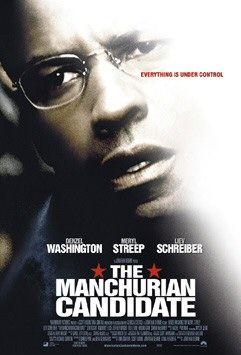
Courtesy of wikipedia.com
The thief was furious when he found a 4-year-old child strapped into the back seat of the car he’d stolen. His response was to slam on the brakes and reverse direction. Finding the mother newly emerged from the grocery store with a gallon of milk, he scolded her for leaving her youngster alone in a car. After handing the child over to the woman, he peeled off in the vehicle a second time, but not before shouting from the open window that he intended to report her to the police. As of this writing, the man hasn’t been caught, but many would applaud his parenting skills if not his morals.
People assess the world around them differently. The mother thought it no harm to make a quick run into the grocery store to buy milk for her child. The thief knew better and taught her a lesson about fear. Given the brain’s plasticity, I doubt she’ll forget that lesson soon.
Nature has given us flexible brains to help us survive in an ever-changing world. Yet, like the thief and the mother, each of us perceives events differently, according to our experience. During the January 6 Capital insurrection, Alexandria Ocasio-Cortez feared for her life. She held Senator Ted Cruz responsible for the violence that occurred because he delayed Joe Biden’s certification as 46th President and gave the rabble time to invade the building. “You almost had me murdered,” she angrily tweeted him.
Her charge wouldn’t hold in a law court, but her feelings were real and strong enough to change her reality. As such, the differences between the two politicians are probably irreconcilable.
Something fearful must have happened to actress and Harvard-educated writer Valerie Gilbert. A fervent QAnon believer, she spends her days seated before her laptop, scanning the web for clues that will expose a cabal of pedophiles, prominent leaders who restore their powers by imbibing infants’ blood. To some, her fear is ludicrous, not worthy of a plot for a B movie. Others, however, share her affinity for rumors.
Donald Trump’s presidency has given us many instances of the harm done when rumors precede facts. After four years in offices, after forcing the public to choose between fantasy and reality daily, particularly about the pandemic, it’s hard to believe anyone could accept that Trump has made America great again. Yet many do.
Before his election, most of us held a common view of what we required from a President. Now that view has been shattered. In the past, the evidence revealed in the Muller Report, published in March of 2019–that Russia attempted to manipulate the 2016 election in Trump’s favor–would have rocked the nation. Yet, a year later, over 7 million people voted to reelect Trump, anyway. Recently, a former Russian spy provided more damning testimony: that our 45th President was Vladimir Putin’s Manchurian Candidate. And still, his supporters stormed the Capital.
If the links between Trump and Putin seem fanciful, they are less so than the views held by QAnon supporters. The former is supported by data. The latter remains a supposition.
That difference aside, there are those among us who, in their misguided view of democracy, have mistaken revolution for patriotism. The question is, how are we to reshape their misconception? How do we lure them back to reality?
Many years may have to pass before a permanent correction is possible, but the first step is evident. We must object to one confusion common among us. There is no such thing as an “alternate fact.” There is only “fact.” The label may have begun as a term of derision, but it has taken hold and by repetition gained a reality that gives falsehood the ring of truth.
Russia well knows the power of repetition. If that country is good at anything, it is in its ability to weaponize lies. QAnon supporters and militias have proved to be especially vulnerable. Flatter them with imaginary information known only to them and they will race down perdition’s road like lemmings to a cliff. In their frenzy, they mistake the chaos they create for freedom. Yet even the meanest artist or scientist, or athlete knows their mistake. Freedom is the reward of discipline, not chaos.
Putin must have rejoiced to see thousands of American patriots murder a police officer and attempt to tear down their nation’s Capital on January 6. Likewise, his Manchurian Candidate is reported to have been entertained.
Angela Stent, a professor at Georgetown University posits additional ideas on how to protect the vulnerable in our society.. (“The Meddlers,” by Angela Stent, Foreign Affairs, Jan/Feb. pps. 176-182.) Our government, she says, should work with social media companies to prevent the spread of disinformation. More, It should retaliate against cyberattacks swiftly and secure our public and private networks.
These strategies seem obvious. The wonder is that Trump’s administration never took them. Putin may be the fly in our ointment, but we have obliged him by leaving the jar open.
Stent’s additional suggestion is one I applaud. We need to pay greater attention to our educational system. How else are we to teach young minds the difference between news and propaganda? Sadly, Trump’s outgoing Secretary of Education, Betsy Devos has left her charge bleeding and near death. We must revive it by rethinking our priorities. Education, not the military, is our first line of national defense. We can no longer afford to ignore the growing enemy within.
